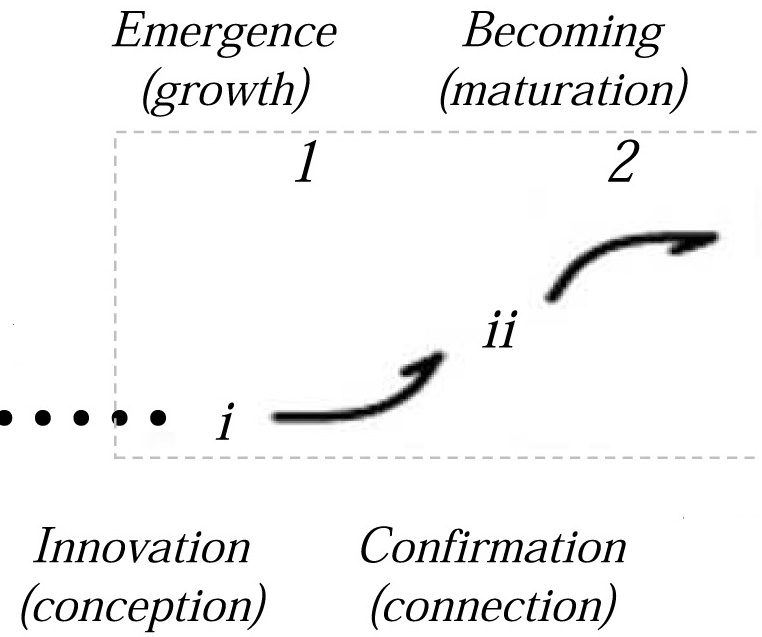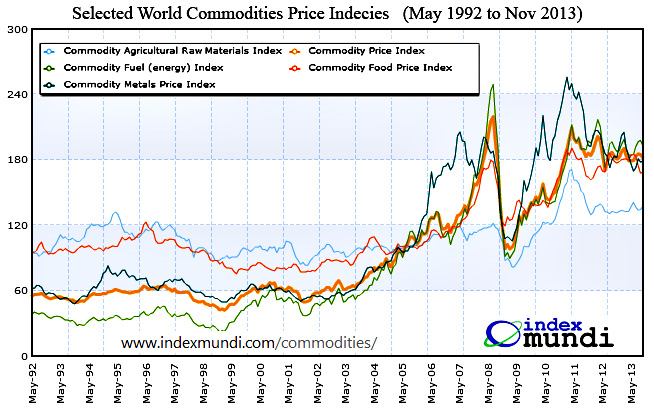This post is for the UN’s OWG 5 proceedings next week, on Post2015 Macro Economic development positions. It led to the OWG 8 proposal “A World SDG“, introducing an integrated true scientific measure of sustainability... It’s now followed with “The Decoupling Puzzle – a partial answer” , on measuring our “decoupling rate”, and the development space reserved within planetary boundaries, such as for achieving world cultural wellbeing!
Sadly, as careful as I am with the language, there is some scientific thinking… so the social organizations generally found no way to engage in discussing it. The basic principle is that “when you build something you then need to take care of it”… something everyone knows in their personal lives. That runs into the problem that, culturally, we don’t see economic growth as “building something”. We see it culturally as a “constant” of prosperity… the ultimate tragedy of our times. that ever faster change is seen as “constant” it seems. 4/21/14 jlh
____________
As a young systems scientist many years ago
I noticed a need for a better type of economic model,
that would connect money to its “externalities” in part. More importantly it would let people see economies as the complex living organisms they really are. What I found was the universal stages of natural development, that are repeated in the way any natural event or system develops from small beginnings to multiply at first, and then by multiplying in it’s environment changes it, an Organizational Stages Model (OSM)
Economies are chock full of independently organized and behaving social and cultural communities behaving like organisms, that each develops from a seed of organization in an environment of resources. You can talk about “why” things occur, causes at a distance or coincidences but that’s an intellectual issue, a prediction, a theory.
This is about using the most general of pattern of “how” individual events occur the processes of developmental causation taking place in nature in every location where events occur.
Economies, for example, are all populated by actively creative and learning people, discovering things and following each other’s leads…. So what this “Organizational Stages Model” (OSM) approach focuses on for economies is how people learn and how what they learn to do spreads as transformational stages of growth and the emergence of new systems, and their natural limits. The simple rule, for the transformative stages of any process of new emerging organization, then, is that it’s organizational process will follow an “S” curve. The first half is of multiplying innovation and expansion of connections, a “burst of development”, and the second a process of rebalancing and integrating.

That’s the dynamic we need to capture in our minds to understand the world we live in. An economy is really a whole “civilization” in fact, organized like an ecosystem, accumulating and passing on its knowledge of “how to live” in the form of family and social cultures, as the living “genetic code” of the societies they create. THAT is what the word “growth” refers to, the compound rates of expansion of that whole organic living culture.
As systems of nature, all those living parts and the whole, first grow and then mature to live and later decline
by very much the same succession of life’s great transformative experiences.
The ultimate most useful model for it I found is really cool! It’s organized as “a Narrative of Life” as a great chain of instrumental transformations. I’ve been looking for a name for my life’s work on it.. perhaps “Life Narrative Studies” (LNS) would do. I won’t further introduce it here, as it’s what my whole site is about, but just present this new graphic to help readers get a feel for the general pattern.
Organizational Stages Model (OSM)
______________
It interprets economies more like organisms, as net-energy systems made of living systems. As self-organizing systems, of necessity, they develop by a “boot-strap” process of using their own resources to expand their own resource access, during growth. That is one of the natural periods of the whole system life narrative, Period 1.
How money connects to it is as “information”, what people use to pass on requests for material services from other people. How we use it conveys “feedback” on everyone else’s experiences of using the natural world (natural signals we need to learn to read). For example, when passing on requests for services, and “other people” are finding the services harder to deliver, the price goes up.
It’s one of “nature’s signals” to read,
“when the price goes up” is a natural signal of “enough”.

We might then use money to relieve demands rather than add to them, to be more profitable.
I developed a variety of other theoretical models, did proofs, published papers, and no one cared that it seemed possible to tame a true “whole system view” for making critical decisions for steering whole systems toward their sustainability. the problem seemed to be it offered whole system guidance… not competing system guidance, so it seemed of not interest.
This new thematic approach did seem to offer clear and highly actionable information for our present circumstance, of facing converging crises of many kinds at once. I’ve written about it in many ways, finding how Keynes himself foresaw the need for the system he designed to evolve this way, to respond to that signal from nature of “enough”. It would need to learn to thrive by people using their money to care for their sources of earnings, rather than to keep using their money to keep multiplying their demands on their sources of earnings, our world of other people and the earth.
There’s a deeper problem I came across.
I was recently helped Pat Thompson’s book “Accidental Theorist”, on the troubled ancient history of public institutions of law and trade growing incessantly, while marginalizing to the point of subjugating the home centered ancient Greek and Minoan high cultures that preceded. Her interesting views of much the same problem I’d been studying, gave me several missing pieces. We had both been substantiating how, how people were affected by becoming absorbed with abstract thinking.
Over history, as became accustomed to living in worlds defined and modeled on our own reasoning, rules and concepts, it structurally altered our awareness of and relationships to things not in our mental models. We didn’t notice that abstract models have no way to refer to their environments, for example, because models can contain only self-referencing definitions.
To hold together an abstract model needs to be in entire self-agreement, and without limits, eliminating the questions about what else might be happening. That personal experience is different, based more on enjoying and relating to undefined subjects generally, got less and less attention as the wealth and power of money and the limitless rules for using money to make money took over the public sphere.
So, that may be where a big part of the self-defeating behaviors of modern economies comes from. acting as if they can continue using rules defined with no environment. That mindset has become more and more deeply embedded in our own global culture, not it appears to have been since the dawn of abstract language. It’s at least clearly visible in the recorded 4000+ years of western history. Abstract thinking builds worlds of its own, leaving people unaware of other worlds and environments.
The one word that seems to turn that around is “homemaking”, as if heard awaking from a dream: “What about homemaking?” what’s the rule for homemaking?? The only use people actually have for money, after all, is taking it home, to give it away, to serve the greater purposes of our lives and cultures we all have. Homemaking starts with concentrating wealth, starting small to multiply, to create the place to live in security as the natural end, not to continue till it fails.
__________
Our general Post 2015 economic plan contains a serious strategic error.
- – With Sustainable Development we’re inevitably adding to the competition over the earth’s shrinking resources, and also to the ever expanding pressures of the growth economy on planetary boundaries too.
- – So… We’re not yet pointing the world in the direction of working as a commons, or addressing our common problems, and so not really doing “home making” for the earth yet.
- – With increasing competition for shrinking stuff it makes a winners and losers game, where everyone is clearly the loser.
- – So we DO need the new paradigm, not yet being discussed.
- – We need the global shift from fighting over shares of shrinking assets, to one of taking care of our assets and the earth,
- – We need a whole systems view, – a commons view, – basic homemaking for the earth.
– Nature’s Capitalism-
jlh

